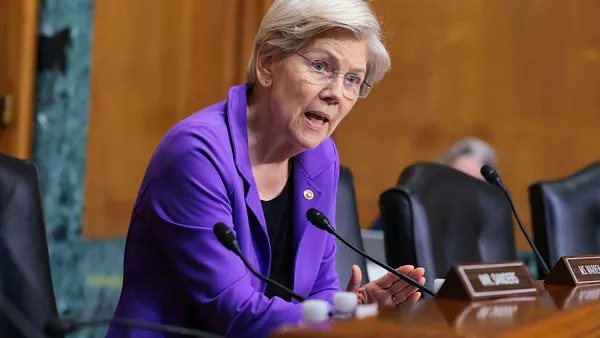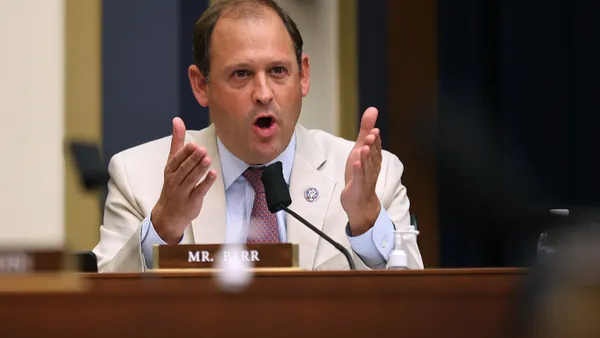Binance.US reached a deal with the Securities and Exchange Commission over the weekend to avoid an asset freeze sought by the regulator this month.
The agreement permits Binance.US’s assets, including $2.2 billion in crypto and $377 million in U.S. dollars, to remain unfrozen while the SEC pursues enforcement action against Binance, its U.S. affiliate and founder Changpeng Zhao over alleged securities violations.
The regulator alleged June 5 that Zhao is the head of Binance.US despite assertions otherwise, and alleged that although U.S. customers were supposed to be restricted from transacting on Binance.com, the platform secretly allowed high-value U.S. customers to do so.
Additionally, the SEC alleged Binance allowed customer assets to commingle and be diverted to other entities owned by Zhao.
The SEC sought a total freeze of Binance.US’s assets June 6.
Under Saturday’s agreement ordered by U.S. District Judge Amy Berman Jackson, Binance Holdings, BAM Management US, BAM Trading Services and Zhao will repatriate Binance.US customer assets. Additionally, Binance.US may not spend corporate assets during this time for any reason other than for the ordinary cost of running the business.
The SEC said the agreement ensures customers’ ability to withdraw assets, and ensures the assets remaining on the platform will remain protected.
“Given that Changpeng Zhao and Binance have control of the platforms’ customers’ assets and have been able to commingle customer assets or divert customer assets as they please, as we have alleged, these prohibitions are essential to protecting investor assets,” said Gurbir S. Grewal, director of the SEC’s Division of Enforcement. “Further, we ensured that U.S. customers will be able to withdraw their assets from the platform while we work to resolve the alleged underlying misconduct and hold Zhao and the Binance entities accountable for their alleged securities law violations.”
Following the agreement, Binance.US took to Twitter.
“There has never been any evidence presented by the SEC concerning mis-use of customer assets. In fact, the SEC lawyers conceded in Court earlier this week, when asked by the Judge, that they had no evidence suggesting that any such thing had occurred,” Binance.US tweeted Saturday.
“The SEC’s request would have effectively shuttered our business, which is consistent with the agency’s continued attempts to kill the crypto industry by any means, even by making allegations that are not supported by the facts,” the company wrote. “This fight has damaged our business and our reputation but not our fighting spirit or our resolve to defend ourselves against unwarranted charges and ‘regulation by enforcement’ tactics that do not belong in our system of justice.”
Crypto industry personnel have alleged for some time that regulators — in particular, the SEC — have it out for the industry.
The SEC on June 6 charged cryptocurrency trading platform Coinbase with operating an unregistered national securities exchange, broker and clearing agency, and also charged Coinbase for failing to register the offer and sale of its staking-as-a-service program.
“Instead of publishing a clear rule book, the SEC has taken a regulation by enforcement approach that is harming America,” Coinbase CEO Brian Armstrong, one of the industry’s most outspoken executives, said that day. “So if we need to avail ourselves of the courts to get clarity, so be it.”
Following both the enforcement action against Binance and Coinbase, Cameron Winklevoss, a founder of crypto exchange Gemini, tweeted, “Being sued by the SEC used to mean you probably did something wrong. Now it means you're probably doing something right.”
Grewal, however, rejected condemnation of the crypto crackdown Friday at an event held by Rutgers University and Lowenstein Sandler in New York, Reuters reported.
"We have worked thoughtfully and incrementally in this space," Grewal said. "Typically you'd also see compliance, but we're not seeing that in this space, so we had to change strategies."
Despite calls for new, clear rules by voices like Armstrong, Grewal expressed skepticism that such rules would mitigate misconduct in the industry, which SEC Chair Gary Gensler recently said was full of "hucksters, fraudsters, scan artists, [and] Ponzi schemes."
"Even if you came up with a bespoke rule set, you have an entire industry where the ethos is built around noncompliance," he said.















